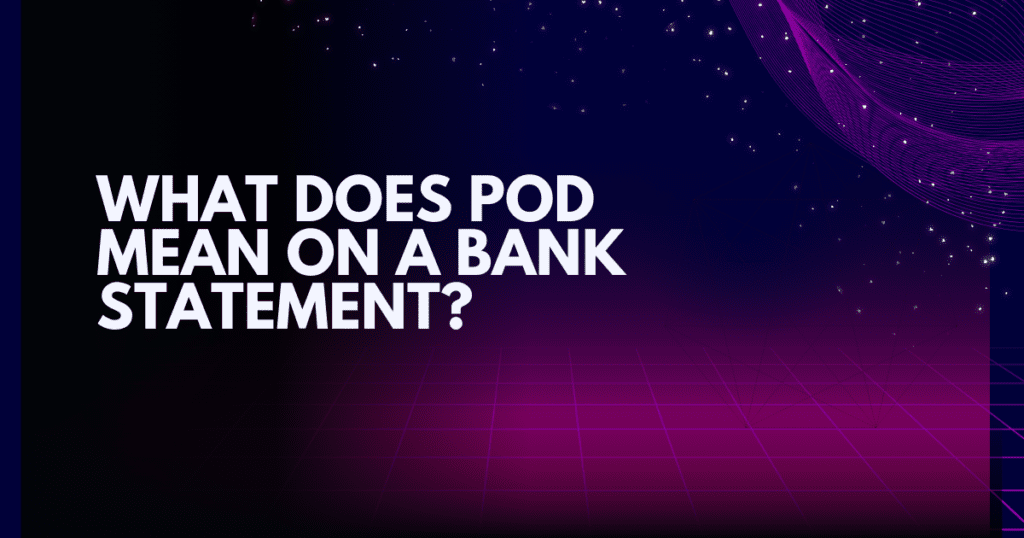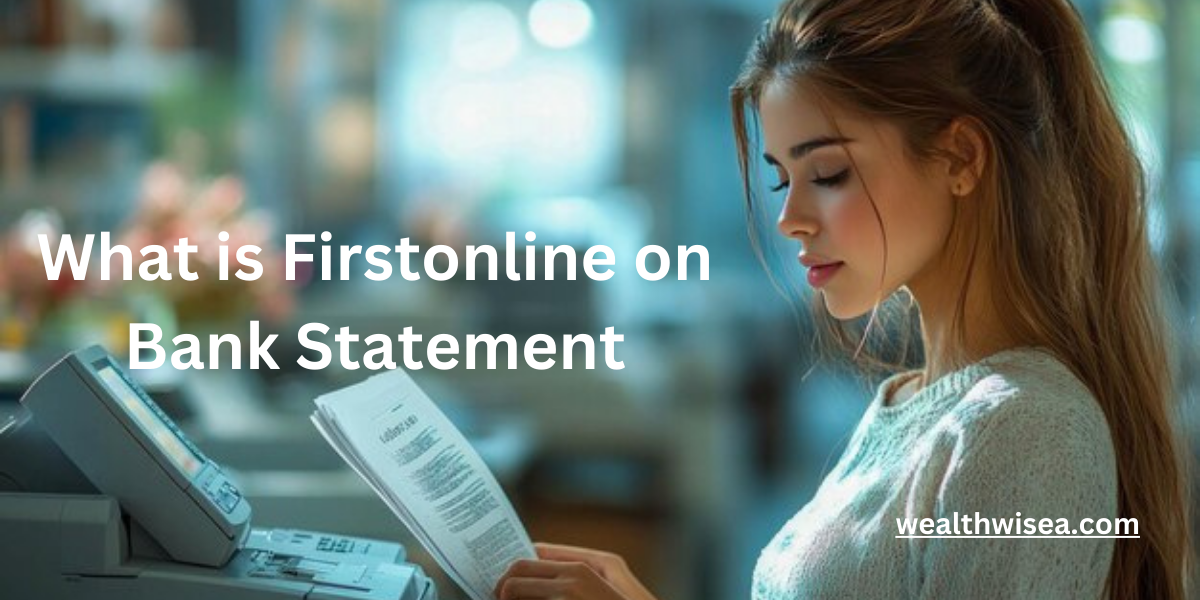What Does POD Mean on a Bank Statement?
If you’ve ever glanced at your bank statement and wondered, “What does POD mean on a bank statement?” you’re not alone. Understanding banking jargon can be a bit tricky but knowing these terms can help you manage your finances better. Let’s break down what POD stands for and why it’s important.

Understanding POD on a Bank Statement
POD stands for “Payable on Death.” This is a specific type of account arrangement that can be useful for estate planning. Here’s what you need to know:
1: Definition
A POD account is a type of bank account that designates a beneficiary who will receive the funds in the account upon the account holder’s death. This means that the money in the account bypasses probate and goes directly to the named beneficiary.
2: How It Works
When you open a POD account, you name one or more beneficiaries. After your death, these individuals can claim the funds without going through the lengthy and often costly probate process. It’s a straightforward way to ensure your assets are distributed according to your wishes.
3: Benefits
The primary advantage of a POD account is simplicity. It can save your beneficiaries time and money, and it allows you to keep control of your account while you’re alive. You can change the beneficiary at any time, and the account remains part of your estate until your death.
4: Considerations
While POD accounts offer many benefits, they’re not suitable for everyone. It’s important to consider how they fit into your overall estate plan. For example, if you have complex estate needs or significant assets, you might want to explore other estate planning tools.
Related Banking Terms
You might encounter other terms on your bank statement that require some clarification. For instance, you might see terms like MBI or TPG products. Understanding these terms can help you better manage your finances.
- What Is MBI on a Bank Statement?: MBI stands for Merchant Bank Identification. It usually appears on your statement to indicate transactions made through certain merchant banks. It’s helpful to know this term to track your spending and understand your financial statements better.
- What Are TPG Products on Your Bank Statement?: TPG stands for The Platinum Group, and TPG products can appear on your bank statement as part of certain transactions or charges. Familiarizing yourself with this term can help you identify and manage any transactions associated with TPG.
Conclusion
In summary, POD stands for “Payable on Death” and refers to an account arrangement that designates a beneficiary to receive the account funds upon your death. It’s a practical estate planning tool that can simplify the process of transferring assets. Understanding terms like POD and other banking jargon can help you make more informed decisions about your finances. If you have any further questions about banking terms or need assistance with managing your account, feel free to reach out for more detailed explanations and resources.
FAQs
1. What is a POD account?
- A POD (payable on death) account is a type of bank account where you name a beneficiary who will receive the funds upon your death. This allows the money to bypass probate and go directly to the named person.
2. How does a POD account work?
- When you open a POD account, you designate one or more beneficiaries. After your death, these beneficiaries can claim the funds directly from the account without going through probate, streamlining the process of transferring your assets.
3. What are the benefits of a POD account?
- The main benefits of a POD account include avoiding probate, saving time and money for your beneficiaries, and maintaining control over the account while you are alive. You can also change the beneficiary designation at any time.
4. Are there any drawbacks to having a POD account?
- While POD accounts offer many advantages, they may not be suitable for complex estate planning needs. For larger or more complex estates, other estate planning tools might be more appropriate.
5. Can I have multiple beneficiaries on a POD account?
- Yes, you can name multiple beneficiaries on a POD account. The funds will be divided among them according to your instructions, or if not specified, equally.
6. What happens to a POD account if there are no named beneficiaries?
- If no beneficiaries are named, or if all named beneficiaries predecease you, the funds in the POD account will become part of your estate and will be distributed according to your will or state intestacy laws.
7. How can I change the beneficiary on my POD account?
- You can change the beneficiary designation on a POD account by contacting your bank or financial institution. They will provide the necessary forms and instructions to update your account details.
8. Can a POD account be used for both checking and savings accounts?
- Yes, POD designations can be applied to various types of bank accounts, including checking and savings accounts, as well as certificates of deposit.




